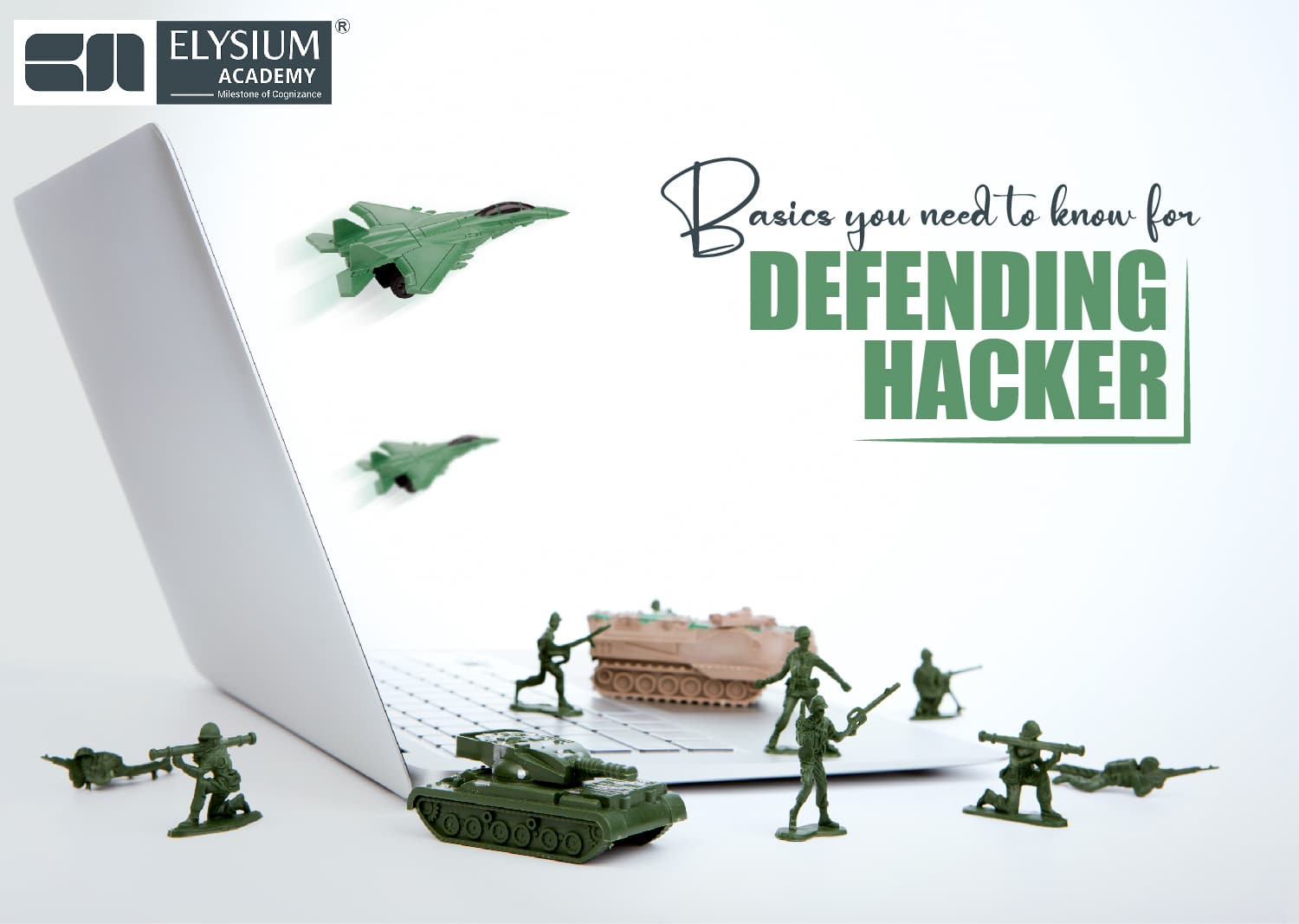A “defending hacker” is a term that refers to an individual who uses their hacking skills to defend computer systems against cyber attacks. This type of hacking is called “ethical hacking” or “white hat hacking.” If you are interested in becoming a defending hacker, there are several basic concepts and skills that you should know. This blog will discuss some of these concepts and skills in detail before get in to a Defending Hacker Training.
Understanding Computer Networks
To become a successful defending hacker, it is important to have a strong understanding of computer networks. This includes understanding how data is transmitted across networks, the various protocols used to communicate between computers, and the different types of network topologies.
Familiarity with Operating Systems
As a defending hacker, you will likely work with various operating systems. This includes Windows, Linux, and MacOS. Therefore, a solid understanding of the ins and outs of these operating systems will be critical to your success.
Knowledge of Programming Languages
While you don’t need to be an expert programmer to be a defending hacker, having a basic understanding of programming languages like Python, Java, and C++ can be extremely helpful. This will allow you to write your scripts and tools to help you with your work.
Understanding Cybersecurity Threats
To be a successful defender hacker, one must be thoroughly aware of the numerous cyber threats. This Defending Hacker Training covers everything from malware and viruses to marketing schemes and social control attacks.
Familiarity with Security Tools
Many different security tools are commonly used by defending hackers training . This includes tools for vulnerability scanning, network mapping, and password cracking. Therefore, being familiar with these tools and how to use them is critical to your success.
Strong Problem-Solving Skills
As a defending hacker, you will often face complex problems requiring creative solutions. Therefore, having strong problem-solving skills will be critical to your success in this field.
Ability to Work Under Pressure
Working as a defending hacker can be extremely high-pressure. For example, you may be working to defend against a cyber attack that is currently underway, or you may be trying to uncover vulnerabilities before an attack occurs. Therefore, being able to work well under pressure is a must.
Strong Communication Skills
As a defending hacker, you will likely be working as part of a team. Therefore, you must have strong communication skills to collaborate with your colleagues effectively.
Attention to Detail defender hacker training
In defending hacking, the devil is often in the details. Therefore, you must have strong attention to detail to identify potential vulnerabilities and effectively defend against cyber threats.
Continuous Learning
Finally, it is important to understand that cybersecurity knowledge is constantly evolving. Therefore, to be a successful defending hacker, you must continuously learn defending hacker training and stay current on the latest threats, tools, and techniques.
Understanding Common Attack Vectors
As a defending hacker, it is important to understand the common attack vectors used by cybercriminals. This includes techniques such as phishing, SQL injection, cross-site scripting, and more. By understanding these attack vectors, you can better defend against them.
Network Security Concepts
Defending hackers must also understand basic network security concepts such as firewalls, intrusion detection systems, and virtual private networks. In addition, they should be able to set up and configure these technologies to protect against cyber threats.
Cryptography
Cryptography is the study of secure communication in the presence of outside parties. Hackers protecting against attacks must comprehend the basics of digital signatures, encryption, and decryption. In addition, to protect sensitive data in transit, they should also be able to use secure protocols like SSL/TLS.
Operating System Hardening
Defending hackers should be familiar with operating system hardening techniques to reduce the attack surface of servers and workstations. This includes practices such as unnecessarily disabling services, applying security patches, and enforcing strong passwords.
Web Application Security
Web applications are an increasingly common target for cyber attacks. Defending hackers training must understand the common vulnerabilities in web applications, such as injection attacks, cross-site scripting, and session hijacking. They should be able to perform manual and automated testing to identify these vulnerabilities.
Incident Response
In the event of a cyber attack, defending hackers must be able to respond quickly and effectively to minimize damage. This requires knowledge of incident response procedures, forensic analysis techniques, and mitigation strategies.
Ethics and Legal Issues
Defending hackers must always operate within the boundaries of ethical and legal standards. They should understand the legal implications of their actions, respect the privacy of others, and follow established codes of conduct.
Industry Certifications for Defending Hacker Training
Many businesses prefer to defend hackers with industry certifications like CompTIA Security+ or Certified Ethical Hacker (CEH). These certifications indicate a certain level of cybersecurity expertise and knowledge.
Soft Skills
Defending hackers should possess soft skills such as teamwork, leadership, and time management. They should be able to work effectively with others, delegate tasks, and prioritize their workload.
Practice
Finally, defending against hacking is a skill that requires practice. Therefore, aspiring defending hackers should set up their lab environments, practice their skills, and seek mentorship and guidance from experienced professionals.
Conclusion
Defending against hacking requires a wide range of knowledge and skills. Success necessitates understanding common attack vectors, network security concepts, cryptography, operating system hardening, web application security, incident response, ethics, and legal issues. To become an effective defending hacker, one must also regularly practice skills and obtain industry certifications. Elysium Academy provide you with a best defending hacker training with certification.












